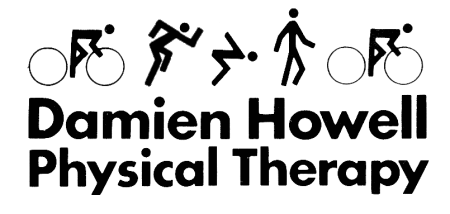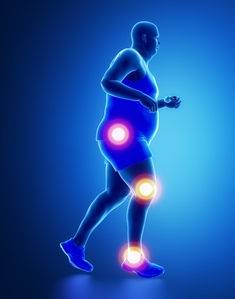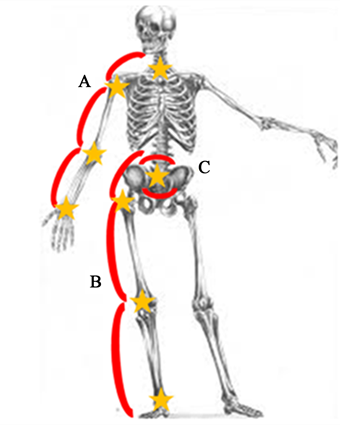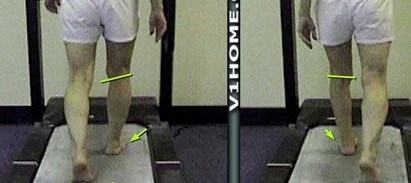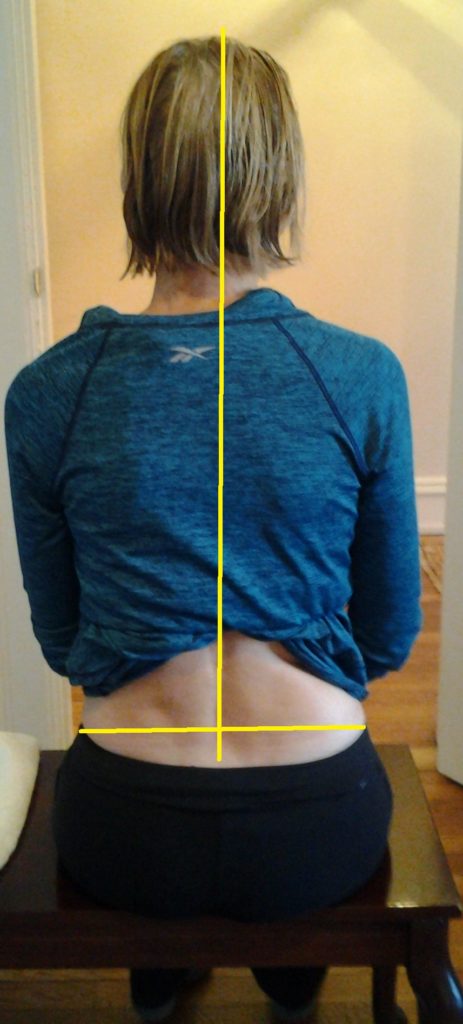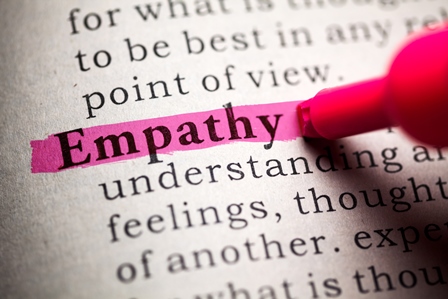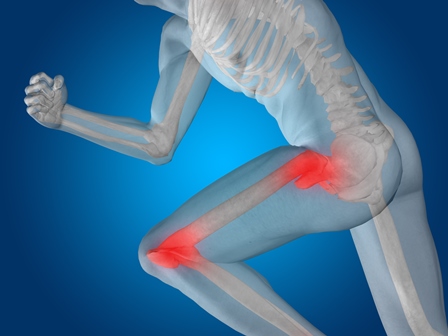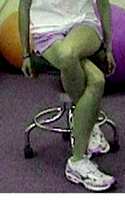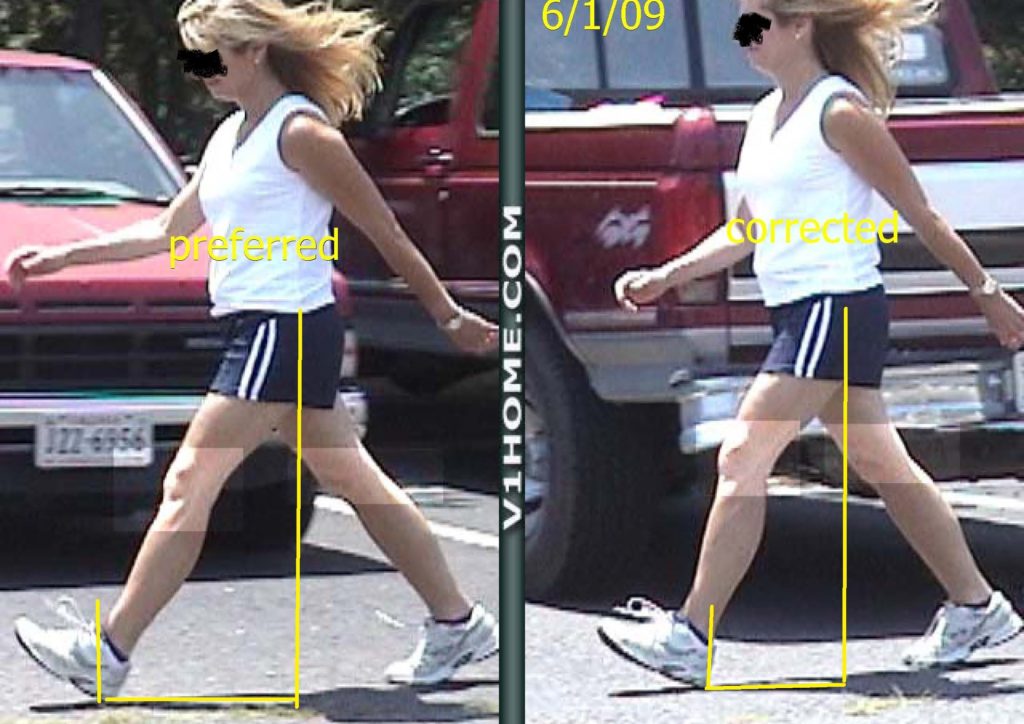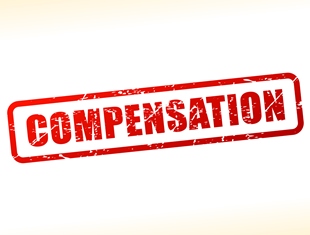Posts Tagged ‘Hip Pain’
How to exercise to lose weight when exercise is painful
High body mass index (BMI) is significant factor in low back pain, osteoarthritis; hip osteoarthritis; knee osteoarthritis, plantar heel pain. Weight loss intervention for pain reduction Decreasing body weight is an effective intervention to decrease musculoskeletal pain. Research by Stephen Messier at Wake Forest U, looking at individuals with painful osteoarthritis of the knee who…
Read More“Deme Bones” – Regional interdependence
The common reframe from the old spiritual song “dem bones” is the “toe bone is connected to foot bone”. In the medical community this concept of mechanical connectiveness is referred to as “regional interdependence”. Regional interdependence is seemingly unrelated impairments in remote anatomical regions of the body may contribute to and be associated with a…
Read MoreGait Deviation – Excessive Inward Rotation of Hip Joint
Excessive inward rotation of the hip joint can be a contributing factor to development of repetitive use injuries of: Lateral hip pain (gluteal muscle tendinopathy) Buttock pain (piriformis syndrome) Anterior knee pain (patella femoral arthralgia) Lateral knee pain (IT band syndrome Shin pain (posterior tibial tendinopathy) Plantar heel pain This video first illustrates the gait…
Read MoreKeeping the Spring in Your Step: Ankle Joint Power & Aging
http://bit.ly/DAMIEN25 As we amass more birthdays and get older we tend to walk/run slower, take shorter steps, and fewer per minute. Why do we seem to have less spring in our step the older we get? Kids move fast and crash elderly move slow and crash. One factor is kids have good ankle power elderly…
Read MoreLateral Pelvic Tilt Sitting
When oriented normally, the pelvis appears level and symmetrical. But in individuals with a lateral pelvic tilt (also called pelvic obliquity), one side of the pelvis appears lower than the other side. Lateral pelvic tilt can both cause and compensation to avoid musculoskeletal pain. It can be a contributing factor to jaw pain, headaches, shoulder,…
Read MoreMusing on Empathy and Pain
Empathy is more than compassion and caring. Empathy is putting oneself in another person’s shoes and actually feeling what that person feels. Recently, I experienced a flare of rheumatoid arthritis with significant disabling hip pain. Deep in misery, I searched for the positive side of my suffering. I thought: “This means I will have more…
Read MoreIT Band Syndrome – Controversy Regarding Stretching Exercise
The Iliotibial (IT) Band is a tendon on the lateral aspect of the hip/thigh/knee. It is a large, wide, thick tendon. A tendon is a structure that attaches muscle to bone. IT band syndrome is a typical injury occurring in runners. A commonly recommended treatment for IT band syndrome is stretching exercise. Searching Google for…
Read MoreWoman’s One-Sided Worries
Over the years, I’ve noticed that my female patients experience unilateral hip and/or knee pain (pain on one side of the body) more often than my male patients do. This predisposition has been observed by others as well Lateral hip pain is typically called bursitis, piriformis syndrome, or gluteal tendinopathy. Studies have shown the incidence…
Read MoreCuing to Alter Gait Deviation of Too Long a Step
Cuing to Alter Gait Deviation of Too Long a Step Mathematics helps explain walking or running faster. Step length X steps per minute = speed. In order to move faster there are 3 opportunities take longer steps or strides, increase the steps/minute (cadence), or do both longer steps and a faster cadence. Taking longer steps/stride…
Read MoreDeviant Gait – Compensation
Compensation is necessary when there is injury or a necessity of making up for something unwelcome or unpleasant. Compensation can be perceived as a negative or positive situation. With injury the dichotomy is will there be recovery or compensation? Salamanders are fascinating animals that are capable of regenerating lost limbs, as well as other…
Read More